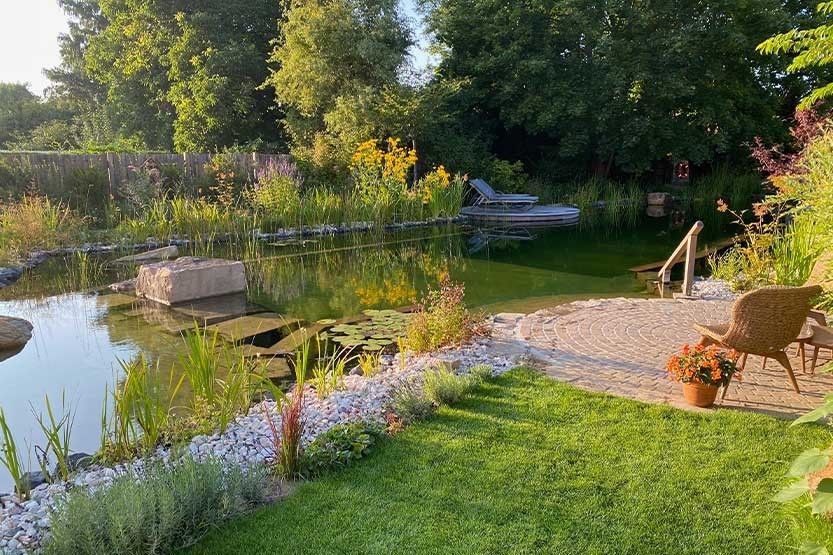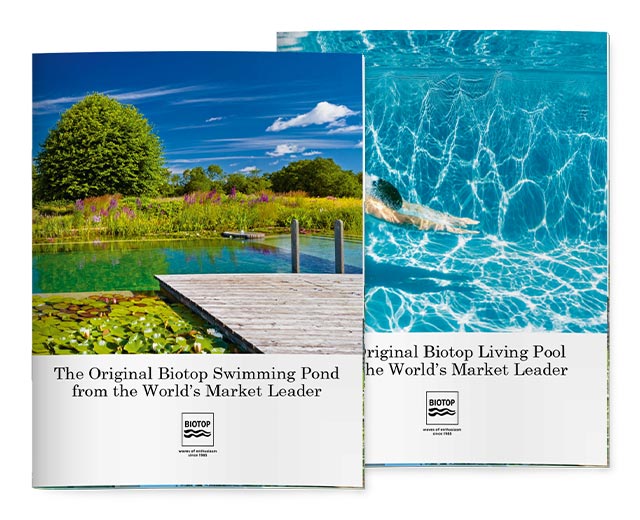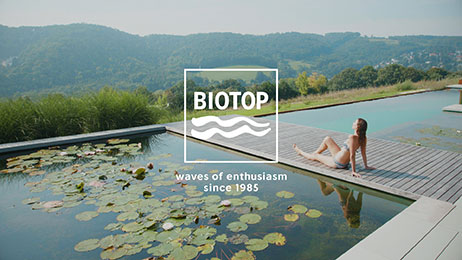News
Sustainability for natural pools

Sustainability is crucial
When deciding on your own pool system, you should consider the time frame. The initial investment in a natural pool is often higher than for a conventional system, but there is the prospect of at least 20 years of use with lower operating costs. Whether natural pool, pond or hybrid version: the sum of all advantages and the sustainability aspect clearly speak in favour of a biopool. Last but not least, the natural water is particularly pleasant for the skin and eyes. It is all the more astonishing that skin irritation and many other side effects of chlorine systems have been accepted up to now. If you want to do something good for yourself and nature, there is no way to avoid a swimming pond or living pool.
How can resources be saved in pools?
In general, you can save a lot of energy and costs with pools - regardless of the system - if you do not use heaters, for example (exception: solar heating). A pool cover also has a positive impact on valuable resources, as covers effectively prevent rapid cooling in spring and autumn and prevent the water from evaporating in summer. This aspect is particularly important in times of increasingly hot and dry summers. But the architecture of the pool also has an influence on resource consumption. Large overflow edges of infinity pools lose more water through evaporation and cool down more quickly than classic pool shapes.
Economical and long-lasting
Biotop natural pools and swimming ponds are particularly efficient because they require even fewer operating materials than comparable systems. This is made possible by innovative technologies such as the Biotop Carbonator, which stabilises the pH value with naturally produced CO2. Biotop filter systems are also extremely efficient, meaning that low-consumption, low-power pumps can be used. The durability of our systems is also very high because, as a natural pool pioneer, we are constantly working on the further development of our products. Many Biotop systems have been running reliably for over 20 years without the need for renovation. In the long term, you can save a lot of money by opting for a high-quality, resource-saving natural pool.
Trends in biopools
Today, there is no longer a strict distinction between swimming ponds and natural pools; instead, providers are trying to combine the best of both systems. Natural pools with or without plants continue to be in vogue, because they can be realised even where space is limited and can be designed in a variety of architectural ways. At the same time, the need for maintenance is decreasing because special pool robots take over the cleaning work. It is also to be expected that natural pools will increasingly be operated in a CO2-neutral manner in the future - for example, with electricity from one's own photovoltaic system. Demanding customers are also asking for more technical pools, such as counter-current systems, heat pumps or lighting - but this runs counter to ecological principles.
|
|
Dr Jakob Schelker heads the Technology, Research & Development departments at Biotop P&P International GmbH. He has years of expertise in researching the self-purifying power of streams, rivers and lakes. His doctoral thesis dealt with the influence of intensive forestry on the water quality of streams. Before joining Biotop, he was head of a research group at the University of Vienna. |


